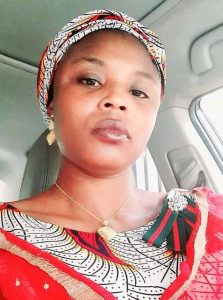
Nigeria, despite having a national gender policy, the number of women in Nigerian politics are incredibly too few. Take for instance In the National Assembly, there are since 2019 only 21 women and that is about six percent of the total, including both the Senate and the House of Representatives. Men, instead, are 448.

Nevertheless, there was an increase compared to the cabinet 1990-2003 as against 2.5% recorded in 1999 during the President Olusegun Obasanjo administration.

If Nigeria is to achieve the sustainable development goal of ensuring gender equality in the political and business arena, there is a lot of work to be done. And giving women equal opportunity and necessary morale support as men enjoys is a perfect way to start. Women make up about 49 per cent of the Nigerian population and nearly one out of four women in sub-Saharan Africa is a Nigerian; which is due to Nigeria’s population boom. While this presents potential human resources that can be harnessed to enhance economic productivity; the disparities in social and economic opportunities between men and women have never been starker. Nigeria has the lowest number of female parliamentarians in sub-Saharan Africa and ranks 133rd in the world for female political representation.
The administration of Governor Yahaya Bello of Kogi from 2016 against all odds and political dogmas in the country, particularly in Northern Nigeria, bet to change the narratives by involving women in key positions at all levels of governance. His administration has been able to pave ways for women to get involved in key decisions making that directly affects the state; which ranges from the education sector, administration, security. One can boldly say that Governor Yahaya Bello has been able to involve women in all sectors in Kogi State except the legislative arm of governance that is yet to feel the magic wand of Governor Yahaya Bello transformation agenda, and women involvement mantra.
By contrast to what Governor Yahaya Bello has achieved in Kogi State, Nigeria’s President Muhammadu Buhari despite having done exceedingly abundantly well for the country, missed this strategic opportunity as only 16 percent of his cabinet members are women. This is in violation of the national gender policy which requires a minimum of 35 per cent female representation on the President’s cabinet. In the National Assembly, only 7 out of the 109 Senate seats and 14 out of the 360 House of Representative seats are occupied by women. This clearly indicates an appalling absence of women at the country’s highest levels of decision-making.
As of 2015, Nigeria had a total population of about 187 million of which almost 91 million is made up of women. That is over 49% of the total population. Out of the available 1533 political seats available at each election, women representation over the years has been less than 6%. 1999 recorded 2.5% of women representation. That of the subsequent years are 3.7% in 2003, 5.4% in 2007, 6% in 2011 and 4,7% in 2015.
population of women in Nigeria is almost equal to that of men. They make up 49% of the entire population. However, they have a dismal electoral representation in political offices.
One cannot totally pin the blame of lack of women involvement in governance on the government, but also the women themselves for their lack of courage to challenge their men counterpart in the pools. This singular reason is why the aspiration of Yemisi Oshaloto should be treated as a necessity and of topmost importance to the good people of Yagba West State Constituency as we approach the primary elections of the All Progressive Congress and subsequently the 2023 election.
According to the Independent National Electoral Commission (INEC), through a report submitted by the Chairman Professor Mahmood Yakubu, 13 percent (2,970) of candidates that vied for different positions in the 2019 general election were women, leaving the balance of 87 percent for men.
A breakdown of the above report present that only 65 women out of those who contested for different political offices in the 2019 general elections were elected.
8 were elected into the Senate, 13 were elected as House of Representatives Members, while other positions like R Deputy Governors, with House of Assembly having the rest.
This analysis further reveled that despite having a low turnout of women to contest for elective positions, the moral support and electioneering required for winning are not always feasible.
For Yemisi Oshaloto to win at the primary and subsequently at the general election in 2023 depends on the people of Yagba West State Constituency; which is why we have been appealing that she gets a necessary support and cooperation to ensure her emergence as elected Member of the Kogi State House of Assembly in 2023.
Yagba West shall test this new waters. Yagba West will produce her first female House of Assembly member. And being a gender sensitive and loving constituency, the aspiration of Yemisi Oshaloto to provide “Idérà” for her people, shall materialize. And ultimately flesh would be added to the people’s Governor, Governor Yahaya Bello’s women inclusiveness mantra.
Signed:
Yagba West Youth
Consultative Forum
24th April, 2022…. Continue reading

